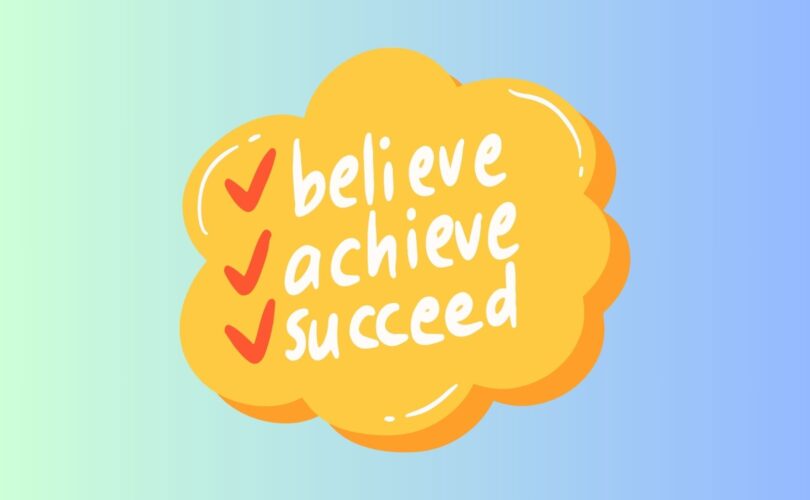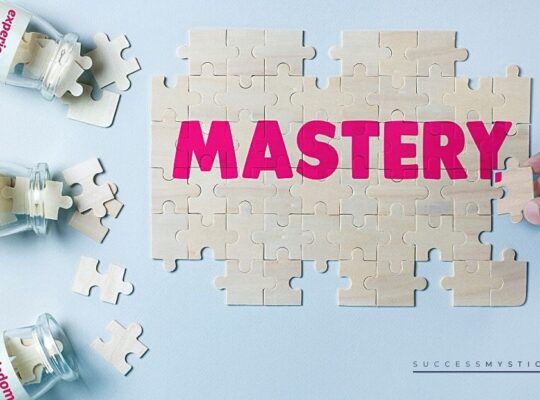What is Clarity?
Perhaps the greatest way to explain clarity (or a lack of it) is through a parable from Brazillian novelist Paulo Coelho de Souza.
He asks you to consider which fireman of two will wash their face. Both have gone into the same forest to fight the same fire. One has a spotless face, the other is coated in a layer of smoke and dust.
So, who will wash their face?
Your Immediate reply is likely the one whose face is dirty. Yet, the dirty foreman will immediately assume that he is as spotless as his partner. Therefore, the spotless fireman will see his dirty partner and assume that he also is in need of a wash. (ref.)
The point is that we reflect on others, we serve as distorted mirrors. The look on the outside can be deceiving, and instead of looking to others to set the tone, you have to instead search within yourself.
Clarity.
Regaining a bit of clarity will provide your life with the boost you have been searching for.
20 Ways To Gain Clairty
1| Assume Responsibility
A lot of people assume that if they wait patiently enough clarity will simply arrive. Some people feel inferior when they can’t gain clarity as others do. The pattern here is this belief that it’s something bestowed upon you from the outside. That it’s something that is given or granted. Some people get clarity and other people just don’t. That isn’t the case.
An attitude like this is self-defeating. Clarity isn’t something that comes from the outside, it’s something that you create yourself. It’s a decision that you make, you have to assume responsibility.
The level of clarity you possess right now is the level of clarity you yourself decided to create. Not making a decision… that’s still a decision. In this case, you’ve simply decided not to search for clarity and not to assume responsibility.
For you, making a decision means cutting off other avenues to pursue. There are other roads available, but you decide that none of them are suitable and choose the route you prefer. Clarity results from the commitment to one direction. Clarity is your responsibility and you have to accept that before you can move forward.
2| Cease Your Contribution to Confusion
Your actions, your thoughts can increase or decrease clarity. If you want to gain clarity in identifying your life goals, then you need to disengage from the confusion. Instead of contributing to confusion, you need to steer away from it.
Some examples of behaviors that contribute to confusion include:
- Spending time with people who drift aimlessly and are not focused.
- Abiding with people who share conflicting values and goals.
- Wasting time by distracting yourself with unhealthy habits or habits that don’t serve you.
- Fueling negativity and muddling emotions by feeding it with alcohol, junk food or drugs.
- Contributing to overstimulated thoughts with stimulants, such as coffee or alcohol.
- Complaining about a lack of clarity instead of pursuing clarity.
It’s possible to incorporate patterns that will contribute to clarity, too:
- Spending time with focused people who and clear of mind and filled with purpose.
- Abiding with people who share your goals or values or are at least not in conflict.
- Choosing motivational content to consume in your spare time.
- Following a healthy diet that will fuel your brain and focus.
- Eschewing stimulants that can contribute to mood swings and negative emotions.
- Taking action.
3| Lessons Learned
Clarity is fluid, you will possess more of it in different points of your life. That’s just how it is. It’s easy to become muddled without realizing that you wandered into the mire.
When you’re struggling to gain clarity look at the lessons you’ve learned in the past. Think about when you’ve possessed a great deal of clarity and consider moments when you haven’t. Are there factors on either side that are contributing to your problem right now?
Look at the factors that contribute to greater clarity, and the ones that confuse it. Do more of the things that help you gain clarity. It’s simple, but it’s effective.
Do you find clarity after journaling? Do you struggle to gain clarity after spending time with a certain person? You know what you need to do.
4| Visualization
You can gain clarity through visualization. You either feel focused right now or you don’t. Clarity isn’t just a feeling that you possess. Yes, there may be emotions associated with clarity, however, it’s much more than that.
When you possess a great deal of clarity you can feel it throughout your body. Your mind is clear, your emotions are centered, and your whole self is in concert. There is no uncertainty present anywhere within you. It’s a powerful feeling.
Conjure up that feeling within you and visualize how it feels to possess total clarity. Imagine your surroundings, what they’d look like if you possessed clarity. How does it feel? Who is with you? What circumstances do you find yourself in? How are you dressed? How do you move? How are you communicating? Use broad brush strokes to paint the most vivid picture that you can. Spend time visualizing your clarity daily. The more you practice it, the more clarity you will gain from it.
5| Help, I Need Somebody
These are words that are okay to speak. You can ask for help. It’s out there if you need it, all you have to do is ask. When you do reach out for help, reach out to someone who possesses clarity.
When they are clear about what their path is, they will be more helpful in assisting you. The level of help you receive will always depend on the source of help. If you reach out to a licensed therapist, you will receive much more help compared to asking Doug next door.
Asking for help doesn’t mean that you release your responsibility for your clarity. You’re just reaching for an assist.
6| Record Your Goals & Review
Everyone knows you are more likely to achieve your goals if you write them down. What you gain from recording your goals is a boost in clarity. You are painting a clear picture of what you plan to do, and it makes your goals real.
If you want to keep something as a fantasy, then you keep it in your mind. It’s just for you. That’s not what your goals are – they’re not fantasies. You want them to manifest so you have to take them out of your head and put them onto paper.
You will also need to regularly review your goals to ensure you are taking the necessary steps to achieve them.
7| Any Goals > No Goals
Write out a list of your goals.
“I don’t want to! What would I even write? I don’t know what they are.”
Sound familiar? It’s a common response. What you are saying when you roll out these excuses is that you don’t want anything. Your life is perfect, you have nothing to strive for. If you want nothing, then that is exactly what you will get. Foolish, isn’t it?
All this to say, having any goal at all is better than having no goal whatsoever. Don’t put pressure on yourself to create the perfect goals. There is no such thing and striving for perfection is setting yourself up for failure.
Start with goals you know will be easy to achieve. As you settle into the habit of goal setting and achieving, you will get better at recognizing what you want.
8| Crystallize Goals
When you initially start the process of goal setting, you are likely to be vague. For example, I want to work in a job that I enjoy. It’s a good starting point, but it lacks force because it’s vague. How can you put that into action? Be more specific with your intent. I want to earn money by writing movies. It’s a big dream, but it’s specific.
You can drill into it and become more specific by clarifying the salary you’d eventually like to earn. The point is that you set clear, specific goals. In order to gain clarity, you have to spell it out.
The more you spell it out, the more likely you are to succeed. When you succeed, you become clearer in what you want.
9| The Path Matters
The end result does matter, but the path you take to get there does, too. In fact, sometimes how you achieve your goal matters more. It’s about challenging yourself in a way that is inspiring. Perhaps your end goal doesn’t spark motivation.
A goal of achieving your degree might not sound great when you think about the time it will take you to get there. However, you can rephrase it to make it more exciting. Like, achieving that degree in less time.
10| One Goal
Juggling multiple goals can muddle you up. To maintain clarity, you should have just one primary goal at any one time. Otherwise, you’ll goal hop and you’ll struggle to achieve anything. Home in on the one goal and go at it until it’s complete. Then, you can set more goals.
You can still sit down and create a long list of goals. However, you will need to prioritize them and work on them one at a time.
11| Explore & Experiment
It can be difficult to set clear goals simply because you aren’t sure what you’re about to get yourself into. In situations such as this, you can gain clarity through exploration and experimentation. Sometimes it has to happen in stages, and that’s okay!
Continuing as you have been isn’t going to provide you with clarity. Considering what you should do next might help, but it’s not always enough. Sometimes you just have to get to it and fill in the blanks as you go. Clarity in motion.
For example, you are unfulfilled in your current job. Despite knowing this, what you don’t know is what you’d enjoy. Find a new job and quit the one you’re in. Do something different. Put space between it and you and explore what you might like. It might not be perfect, but you’re moving and making changes.
Remember, clarity doesn’t magically come to you. It’s up to you to create it yourself.
12| Meditation
You can’t set a goal if you don’t know what you want. That’s an obvious statement. So painfully obvious that the thought makes you roll your eyes. Yet, if you were to be truly honest with yourself, you would admit that you have set goals despite being unsure of what you wanted. Why? Only you can answer that question.
However, to set clear goals you have to first know who you are and what you want. One of the most effective ways to do so is through meditation.
Find a quiet place where you can find calm. You should be able to clear your mind, shut out distractions and allow your thoughts to flow freely. In doing so, you become more receptive to those thoughts and gain a deeper sense of clarity over what your inner self has to say.
13| Long-Term Brainstorming
We noted earlier that you should only work on one goal at a time. We should have been more specific. You can hold a long-term goal and actively work toward it while also working on a short-term goal.
Have a brainstorming session to work out what long-term goals you would like to work toward. Do so by considering different areas of your life. Think about personal development, spiritual development, health and wellness, relationships, career, finances, and environment.
14| Short-Term Brainstorming
Small goals are also important, we’re always putting things off. Have immediate goals that you can strive for. Not every goal has to be life changing.
15| Why Your Goals Are Your Goals
Are your goals truly your own? Or, are they based on the opinions and desires of others? Review your goals and if they don’t fit or spark something within you, just drop them off your list. Your list of goals should be built from your deepest desires, never forget that.
16| Eliminate Excuses
You have probably thought about what it would be like to win the lottery, even if you don’t play it. So, let’s go with it. Imagine you have won the lottery, or your friend did and gifted you a large sum of money. You no longer have the excuse of money (or time) standing in your way. You can do absolutely anything you want to. What is it?
Okay, you didn’t win the lottery. That’s okay. You don’t need to wait for that. There is no such thing as a perfect moment. It doesn’t matter what excuses you can come up, eliminate them, the best time to get started is now. It’s always now.
17| Remove Distractions
Distractions will keep you from gaining clarity. What you read, whom you spend time with, what you watch, eat… all of this will determine how successful you are in your life. That doesn’t mean you can blame those things for your lack of success.
Ultimately, you decide what to consume. If you choose to populate your day with distractions, then you won’t accomplish anything. That doesn’t mean you have to wake up every morning at four and meditate while drinking green tea.
It’s all about finding the right balance. The point is that clarity is difficult to obtain if you don’t strike the right balance in life. You will only achieve what you have prepared yourself for.
18| Destiny
Your purpose in life is important, so is the ability to set small, attainable goals. The latter will help you shut out the temptation to overthink it. Sometimes the best course of action to gain clarity is simply not knowing. How can this be? Well, you should know what drives you, what triggers you to act, it’s important to know what kind of impact you’d like to have on the world.
What it’s okay to not know what your perfect purpose is. Searching for it will hold you back because it isn’t as deep as we tend to try and make it. You can’t publish a book until you write it. You can’t finish writing a book until you start writing that first paragraph.
All this to say, you should write your own destiny. Don’t wait for answers before you act.
19| Clarify Priorities
Your clarity belongs to you and you alone. If you are confused by others, that is not on you, that is rooted in their own confusion. When you are committed to something the natural result is clarity. The Latin word decidre is the root of decide. It means cut off from. So, prioritizing simply means to cut yourself off from other possibilities. Or, to cut them away. You can avoid confusion, thus gaining clarity, by establishing your priorities.
20| Observe Yourself
Novelist William Gibson said it best when he said: “We see in order to move; we move in order to see.”
Your thoughts will eat you alive if you don’t gain clarity. Meditation is one of the ways we have mentioned can help you gain clarity. This is true, meditation is a powerful exercise. A quick search online will provide you with endless guided meditations that are free and easy to use. There is more than one form of meditation.
The point of meditation is to observe your thoughts, to accept them and release them without judgment. So, the final advice we offer for you in your journey to gain clarity is to observe yourself.
We’ll call this a pause with a purpose. This pause will provide you with time to reflect and observe yourself. Life is always on and it can feel as though you have to be, too. However, detaching for a pause with a purpose is vital in your journey to gain clarity.
Everything is Easier With Clarity
Everything just feels easier when you gain clarity. When you hone in on what you want, the excuses tend to disappear. Having a clear view of what you really want helps drive action. There is no time for excuses when you’re busy accomplishing. You stop overthinking, you stop focusing on your fears… you’re busy, too busy for all that nonsense.
Clarity. It drives action. So, what do you do? How do you deal with it in your life?
Finally, remember this as you set about gaining clarity on your goals and setting them for your life. Your goals should align with the SMART method. Your goals should be specific, they should be measurable, attainable, realistic, and timely. To break that down, it means to clearly define your goals, to include dates and exact steps you will take, it should be something that you can achieve, it should be something you care about, and align with your values and direction in life, and you should have a deadline.
A good example of a goal that follows the SMART method:
I will, by the 31st of March 2020, submit one-dozen applications to graduate schools offering Master of Fine Arts programs in creative writing.
A poor example of the above would be – I want to write books.
You can see the difference between the two. You can see the clarity in the first one versus the latter. Which one do you think you’re more likely to stick with? The first one, obviously. You have a deadline to work to, a specific goal to chase. You’re setting yourself up to win.
The way you word your goals can make a difference in whether you achieve them or not. You should feel passionate about your goals. One final point, when you write out your goals you should always frame them in a positive way.
You aren’t stopping something; you’re always starting something. Clarity is great, but it’s just as important that you set yourself up for success by framing your goals in a positive manner.







